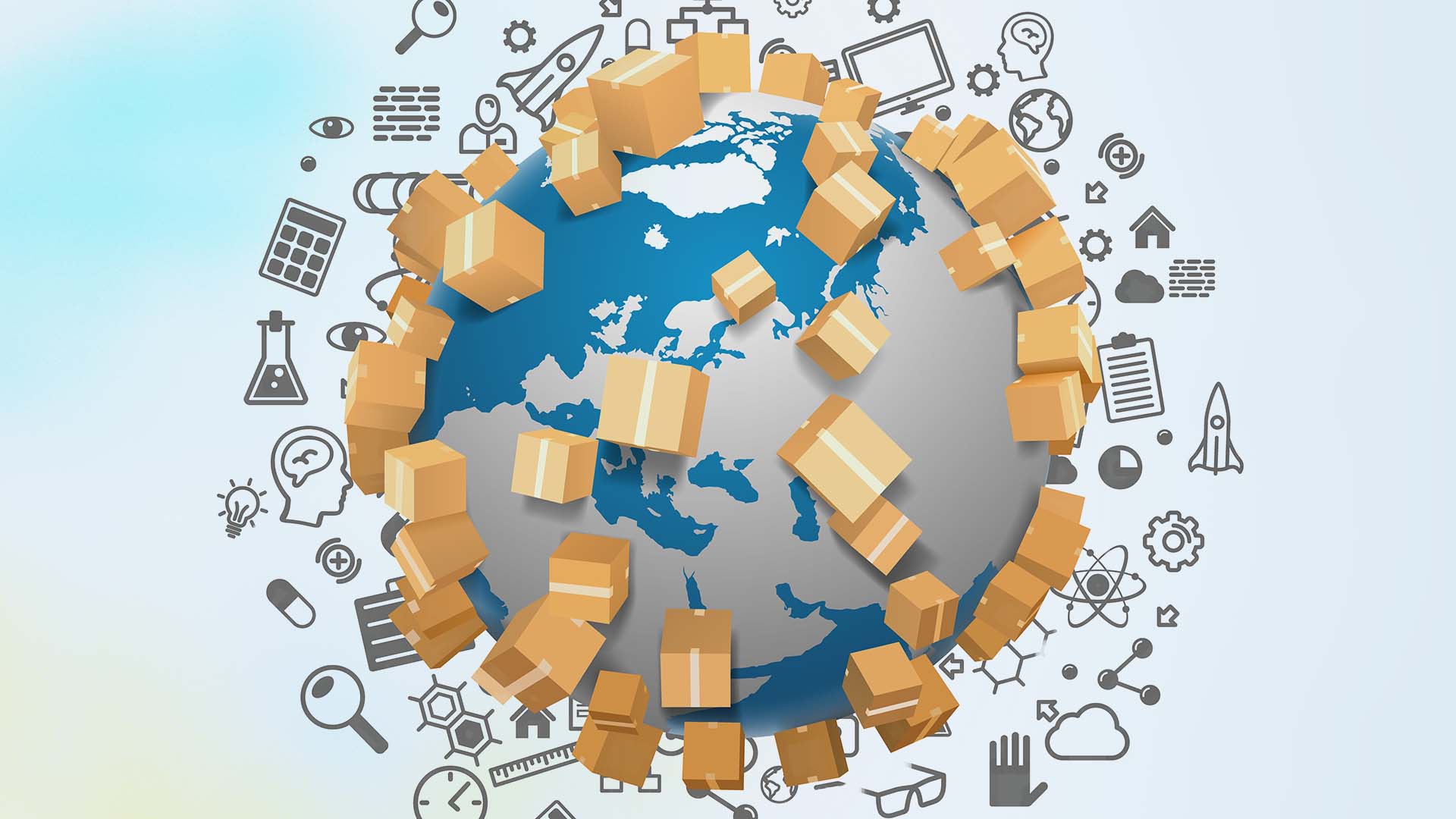In April, the Economist’s 1843 magazine published a guide to coronavirus-related terms from around the world, featuring words such as Hamsterkauf from Germany (referring to panic-buying and hoarding), quatorzaine from France (meaning a 14-day period of self-isolation) and untore from Italy (meaning plague spreader)1. Now that we have all calmed down on the Hamsterkauf front we, alongside politicians and the media, have begun to ponder a post Covid-19 new normal.
The problem is, no-one is quite sure what this will look like. Amongst the reams of articles trying to make sense of it all, one journalist’s analogy seemed particularly accurate: the jigsaw pieces of life have been thrown into the air and while they are now starting to float back to earth, it is still not clear what picture they will form. The only thing that does seem clear is that the picture will be different from before: the so-called “invisible enemy” of Covid-19 has had a very visible impact on just about every aspect of life and while some things will go back to how they were, others might change entirely.
‘Things have changed so fast, we haven’t had time to be astonished’2
The pandemic has pressed the fast forward button on the structural changes which were already taking place around the world, which have been part of our investment discussions for years. Microsoft CEO, Satya Nadella, said they’ve seen “two years’ worth of digital transformation in two months” and MasterCard reported a 40% increase in contactless transactions worldwide. No surprises then that online shopping is booming: in the four weeks to 14 June, online grocery sales in the UK were up 115% compared to the same period last year3. This has been matched by a rise in cybercrime as one hackers-for-hire group alone has set up 27,000 malicious web pages to enable phishing attacks4.
You will have heard us talk about the rapid pace of digital transformation before, but it’s not just technology companies that are experiencing this rapid pace of change. The delivery of goods and services across all sectors is changing, with many old practices being abandoned for good. “Resilient” and “futureproof” are the buzzwords for businesses now as they seek to adapt in order to ensure they can continue to deliver in all circumstances and meet rapidly changing consumer habits. Companies that were already well-placed to benefit from the trends or are flexible enough to adapt are the ones that will survive and thrive in this “Darwinian shake-up”. We are optimistic that the companies in our portfolios tick these boxes, thanks to our investment process which seeks out companies swimming with the tides of change.
The new normal of face masks and home working has led to a surge in facial plastic surgery in South Korea, with patients able to hide the tell-tale signs of swelling5. Remote and digital healthcare solutions were already gaining traction thanks to a rare ability to meet the needs of both an ageing population (treating them closer to home) and millennials (delivering health services on demand). In 2020, the need to keep people out of hospital has become ever more urgent. Healthcare IT company Cerner is clearly well-positioned to benefit from this trend, but other companies are too. Fresenius Medical Care is investing in the roll out of best-in-class equipment to facilitate home dialysis treatment. LabCorp has spent years building up consumer-centric services such as home-testing kits and testing centres outside hospitals while Align Technology designed its Invisalign braces specifically to require fewer visits to dentists.
From “just in time” to “just in case”
From sourcing raw materials, to manufacturing and delivering to customers, companies are adapting their business models in response to the changing global environment and consumer preferences. Changes to supply chains have been underway for a while as increasing environmental regulation, greater protectionism, and the US-China trade war have chipped away at the case for ever more globalisation. But the pandemic has certainly sped things up: the Covid-19 outbreak has left management teams in no doubt about the importance of diversified supply chains. In a UBS survey of CFOs, 44% said the pandemic has increased their intention to relocate manufacturing6. If this persists, it has the potential to remove one of the great deflationary pressures of the last few decades.
At the delivery end of the spectrum, big developments are occurring too. An expert in logistics for a UK supermarket told us that in the current environment, the red tape has melted away: projects that would have taken two to three years under normal circumstances have been completed in a month. In the US, Tractor Supply expanded its delivery partnership with Roadie to cover all its stores, condensing a year’s worth of work into just three weeks. It’s paid off: online orders have soared with many customers opting for the same-day delivery option. In five weeks, Tesco, which is held in some portfolios for income, increased online delivery capacity from 600,000 slots to 1.3 million slots per week at a cost of just £4 million7.
Of course, in these uncertain times, resilient must also mean flexible. Consumer habits are unpredictable. Sharing his insights with the Veritas team, a luxury brand expert identified two potential shopper-types post-lockdown: “careful shoppers” who will continue to moderate their spending habits and “revenge shoppers” who will spend with abandon as they try to make up for lost time. The military warns us that generals who “fight the last war are likely to lose the one they’re in”: companies must remember that the next crisis is unlikely to be the same as this one and we look for management teams who build adaptability into their business models.
Never waste a crisis
Taking a step back, many believe this is the time to build resilience and flexibility into society too. Governments and institutions have poured resources into finding solutions for firstly the health emergency and then the financial one. UK government debt reached 100% of GDP for the first time since 1963 as job centre claimants rose 126% after lockdown was introduced8. Globally, central banks have now committed over $17 trillion to tackle the economic impact of the pandemic, dwarfing the measures introduced through the 2008-09 global financial crisis and with a much shorter delay9. As attention now turns to rebuilding, questions are being asked about whether we can use this as an opportunity to tackle some of the broader issues society faces, such as climate change and inequality. Milton Friedman famously said: “Only a crisis – actual or perceived – produces real change. When that crisis occurs, the actions that are taken depend on the ideas that are lying around”. Well there are plenty of ideas out there: carbon taxes, universal basic income, circular economies, well-being economies, debt write-offs…
But as you know, we don’t make economic predictions and this crisis has certainly not tempted us to start trying. For all the havoc it has wreaked, Covid-19 has not changed our investment philosophy. We remain focused on protecting and growing our clients’ assets to ensure they meet their long-term inflation plus targets by seeking out companies with strong balance sheets, resilient and adaptable business models and a culture which focuses on long-term sustainability. We are certain that this will be the case regardless of how the picture looks when those jigsaw pieces finally settle.
Written by Philippa Bliss
on behalf of the Investment Team
Notes from a… global superpower
During the eight days we spent travelling around Shanghai, Nanjing and Hangzhou in January, immersed in Chinese technology and healthcare companies, there was absolutely no evidence of the health crisis that we now know was already spreading rapidly in Wuhan. This degree of obfuscation on the part of the Chinese government probably comes as no surprise. It also tallies with the sense of smoke and mirrors some of our meetings and site visits left us with, from laboratory ‘technicians’ with creases still in their lab coats, to outright fabrications in company presentations.
Although Covid-19 has since changed every conversation, the main issues we identified as relevant to our investments have not gone away – and will help shape the ‘new normal’ we discuss in the main body of this note.
By 2050 China is expected to have the oldest population in the world. Property is currently so important to retirement plans that grandparents are buying properties for three-year olds! This hints at problems to come: the long-term risk of a property bubble and crash, a rising dependency ratio which could hit 47% and a less vibrant economy as entrepreneurship dries up. With limited State and employer pension provision and an improving regulatory environment, the opportunity for financial service companies in China is tangible.
Chinese consumption is expected to equal or exceed that of the US by 2035. But consumer preferences are changing. The next generation of young, newly wealthy Chinese consumers are becoming more discerning and open to creative local brands. Global leaders in luxury and consumer goods can no longer take Chinese customers for granted.
However, one area where West remains best is healthcare. Whilst the Chinese biotech industry is booming, aided by the expertise of ‘returners’ often from the US, demand for trusted International pharmaceuticals remains strong. Sales of Roche’s innovative cancer medicines have grown so rapidly in China over the last five years alone that they were equivalent to launching three new blockbuster10 drugs.
In education, there is high demand for live-streamed courses as technology empowers fairer access to resources. Be warned before attending classes though: one video company has developed technology to see who is and who is not paying attention in class…
Those paying attention know China is taking sustainability more seriously than Western reporting would suggest. In the last 20 years, its economy has grown ten-fold with only a three-fold increase in emissions. China is at once the ‘greenest’ country in the world and the most polluting. Motives for its investment in sustainable technology are clear: namely 1.4 billion people to keep happy and, with a power vacuum left by the US administration’s approach to climate change, the opportunity to develop technology leadership in renewables and electric vehicles.
Which leads us to the thorniest issue for investors, namely the breakdown of US-China relations. We left China with a sense that the decoupling of these global superpowers is now inevitable. Technology wars and attempts to unravel highly intertwined supply chains have been well-documented but there are other cultural factors at play, which make it dangerous to focus only on the economic barriers to decoupling. Differing attitudes to privacy is one, China’s human rights record is another, and deep-seated mistrust has taken hold on both sides – exacerbated in recent weeks by the developments in Hong Kong.
China is a hugely important market for many of our companies: a highly attractive consumption story, ecosystems in manufacturing that would be hard to replicate, and world leading technology in the fields of AI and 5G. This has not changed. Presenting to the team on our return, we debated whether globalisation is sufficiently entrenched to withstand the forces pulling the two dominant nations apart. Could the pandemic be the straw that breaks the camel’s back?
Written by Catriona Hoare and Gemma Paramor
- https://www.1843magazine.com/upfront/brave-new-word/do-you-speak-corona-a-guide-to-covid19-slang ↩︎
- Graham Allison, American political scientist ↩︎
- https://www.thegrocer.co.uk/supermarkets/city-snapshot-grocery-sales-boosted-by-online-and-convenience/645562.article ↩︎
- https://www.darktrace.com/en/blog/the-advanced-email-spoofing-attacks-of-hackers-for-hire-group-dark-basin/ ↩︎
- https://koreajoongangdaily.joins.com/2020/05/12/industry/plastic-surgery-plastic-surgery/20200512174807920.html ↩︎
- UBS Evidence Lab Supply chains are shifting: how much and where? 15 June 2020 ↩︎
- https://www.tescoplc.com/news/2020/first-quarter-trading- statement-202021/ ↩︎
- https://www.theguardian.com/business/2020/jun/16/uk-jobcentre-claimants-coronavirus-crisis-unemployment ↩︎
- https://www.ft.com/content/5db9d0f1-3742-49f0-a6cd-16c471875b5e ↩︎
- Blockbuster = medicines with sales over $1 billion ↩︎
 Catriona Hoare
Catriona Hoare  Gemma Paramor
Gemma Paramor 